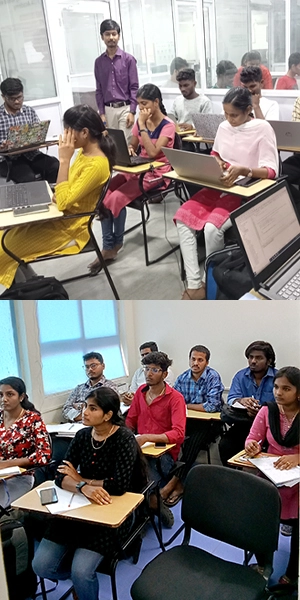FITA Academy
Empowering students across various fields, we help you enhance your skills and provide unlimited placement support until you land your dream job. Ready to learn and make an impact?
Course Highlights and Why MERN Stack Course in Chennai at FITA Academy?
Upcoming Batches
- 17-07-2025
- Weekdays
- Thursday(Monday - Friday)
- 19-07-2025
- Weekend
- Saturday (Saturday - Sunday)
- 21-07-2025
- Weekdays
- Monday (Monday - Friday)
- 24-07-2025
- Weekdays
- Thursday(Monday - Friday)
Classroom Training
- Get trained by Industry Experts via Classroom Training at any of the FITA Academy branches near you
- Why Wait? Jump Start your Career by taking MERN Stack Training in Chennai!
Instructor-Led Live Online Training
- Take-up Instructor-led Live Online Training. Get the Recorded Videos of each session.
- Travelling is a Constraint? Jump Start your Career by taking the MERN Stack Online Course!
MERN Stack Course Objectives
- A MERN Stack course in Chennai for freshers helps you understand the fundamentals of NoSQL databases and why they are essential in modern application development.
- Differentiate between relational databases and NoSQL databases, highlighting the advantages of the latter.
- Introduction to MongoDB, its installation, and configuration, both in command-line and GUI modes.
- Gain proficiency in MongoDB’s data model, including collections, documents, and schemas.
- Develop skills in querying MongoDB collections using various operators and logical operations through our MERN Stack Course in Chennai.
- Learn CRUD (Create, Read, Update, Delete) operations in MongoDB, along with bulk write operations.
- Explore aggregation operations and understand how to use aggregation pipelines and Map-Reduce functions.
- Understand data modeling concepts, including schema validation and flexible schemas.
- Acquire knowledge of handling transactions, indexes, security, replication, and sharding in MongoDB.
- Gain practical experience in building of web applications using Node.js, Express.js, and ReactJS within the MERN (MongoDB, Express.js, ReactJS, Node.js) stack.
Syllabus
MongoDB - Introduction
- What is NoSQL
- Types of NoSQL DBs
- Necessity for NoSQL DBs
- Relational Databases Vs NoSQL Databases
- Advantages of NoSQL Databases
- Introducing MongoDB
Installation and Configuration of MongoDB
- Downloading and Installing MongoDB
- Command Line Mode - Shell
- GUI mode with MongoDB Compass
- Starting and Stopping MongoDB
- Getting Help
Fundamentals of MongoDB
- Understanding MongoDB model
- SQL Terms Vs MongoDB Terms
- Understanding Database
- Understanding Collections
- Collections Vs Tables
- Understanding Schemas and Documents
- Creating and Dropping a Database
Working with Data - CRUD Operations
- Creating Collections
- Inserting Single Document and Multiple Documents
- Inserting with _id Field
- Inserting Document with Arrays
- Understanding Embedded and Nested Documents
- Updating Single and Multiple Documents
- Using Update Operators – Field Update Operators and Array Update Operators
- Deleting Single and Multiple Documents
- Understanding and Implementing Bulk Write Operations
- Working with Retryable Writes
Querying Collections
- Using Query Operator - find() to query Documents
- Querying Fields and Nested Fields
- Using Logical Operations in Query
- Querying Nested and Embedded Documents
- How to Query an Array?
- Projecting Fields in a Query
- Using _id Field in Query
- Querying Null and Missing Fields
- Querying Text in MongoDB
- Indexing Text for Search
- Understanding Text Search Operators
- What is Geospatial Search
- Understanding and using Geospatial data
- Geospatial Indexes and Queries
Aggregation Operations
- Understanding Aggregation Operations
- Using Aggregation Pipelines
- Pipeline Expressions and Behaviors
- Understanding Map-Reduce Functions in MongoDB
- Understanding Map and Reduce
- Using Map-Reduce
- Using Map-Reduce Javascript Functions
- Map-Reduce results
- Understanding Incremental Map-Reduce
- Understanding and using Map-Reduce Concurrency
- Exploring Aggregation References
Understanding Data Models and Schema
- Introduction to Data Modelling
- Understanding Schema in MongoDB
- Flexible Schema and References
- Understanding Schema Validation
- Create Validation Rules
- Using Query Expression to Validate Data
- Bypassing the Document Validation
- Deep dive into Data Modeling Concepts
Handling Transactions in MongoDB
- Understanding Transactions and Transactions API
- Understanding Atomicity
- Executing Multi-document Transactions or Distributed Transactions
- Transactions Operations and Restricted Operations
- Production Considerations
Handling Indexes in MongoDB
- What is Indexing and Advantages of Indexes
- Single Field and Compound Indexes
- Multi key Indexes, Text Indexes, Wild-card Indexes
- Hashed Indexes
- Managing Indexes
Managing Security
- Implementing Security in MongoDB
- Understanding and Enabling Access Control
- Handling Authentications
- Understanding and Configuring Encryptions
- Configuring and Managing Auditing
Replication
- Importance of Replication for High Data Availability
- Implementing Replication in MongoDB with Replica Sets
- Understanding Asynchronous Replication
- Change Stream
Sharding in MongoDB
- Understanding the purpose of uses of Sharding
- Understanding Sharded Cluster Components
- Harshed Sharding and Ranged Sharding
- Handling Collation in Sharding
- Understanding Zones
- Introduction to Sharded Cluster Administration
Node.js - Understanding the Web
- Architecture of a Web Application
- Server Side Scripting
- Client Side Scripting
- Importance of Performance
Introduction to Node.js
- What is Node.js
- Advantages of Node.js
- Installing Node.js and Configuring Node.js
- Architecture of Node.js
- Appreciating the Performance of Node.js
- Understanding Event Driven code execution and Asynchronous Events in Node.js
- Understanding Event Emitters
Implementing Node.js
- The Node lifecycle
- Creating and running a Node Server
- Handling Requests and Responses
- Routing and Redirecting Requests
- Handling Streams, buffers and Events
- Handling Multi-processing in Node.js
- Handling Run time Errors
Modules in Node.js
- Understanding Modules in Node.js
- Exploring various built-in Modules
- Third party Modules for Node.js
- Introduction to Node Package Manager - NPM
- Understanding Global and Local NPM Packages
- Installing and Updating a Module
- Deleting a Module
- Introduction to various NPM Modules
ExpressJS Framework - Introduction
- Why the need for Express Framework
- Overview of ExpressJS framework
- Installing ExpressJS
- Understanding Request and Response Objects
Exploring ExpressJS
- Configuring ExpressJS
- Understanding Middleware
- Understand How Middleware Works in ExpressJS
- Add a Middleware
- Creating Custom Middleware
Handling Requests and Responses
- Handling Routing
- Using ExpressJS Router
- Path Filtering
- Creating and Serving HTML Pages
- Using Jade Templates
- Navigating Datasets
- Using REST in ExpressJS
- Handling POST
- Handling JSON data
- Handling Errors
Programming with ReactJS - Introduction
- Introduction to Single Page Applications - SPA
- Introduction to ReactJS
- Uses of ReactJS
- Understanding the Component based Architecture of ReactJS
ReactJS – Setting up the Environment
- Setting up NodeJS
- Understanding NPM
- Understanding Webpack
- Selecting the right IDE
- Working with various ReactJS browser Plugins
ReactJS – Understanding JSX
- Introduction to JSX
- Understanding JSX Format
- Creating React Components
- Understanding various types of React Components
- Compiling JSX code to Javascript
- Understanding ReactJS Rendering
- Understanding ReactDOM.render
- Understanding Props
- Understanding ReactJS Datatypes
- Understanding ReactJS State
ReactJS – Creating UI, Forms and Handling Events
- Understanding UI in ReactJS
- Understanding various Form Components
- Getting Inputs from the User
- Setting up Default Values
- Managing Form Validations
- Understanding ReactJS UI Components
- Writing Styles in ReactJS
- Styling Components using CSS
- Understanding In-line Styles
- Working with External Styles
- Understanding various UI Component Libraries
- Understanding Events in ReactJS
- Working with Various Events – Mouse Events, Keyboard Events and OnChange Events
ReactJS – Understanding the Component Life Cycle
- Understanding the Component Life Cycle
- Understanding the Initial Render
- Understanding the Props Change and State Change
- Understanding various Life Cycle Methods
- Component willMount, didMount and willUnmount
- Component willUpdate and DidUpdate
- Understanding the effective usage of various Life Cycle Methods
ReactJS – Understanding Redux and Flux
- Understanding What is Redux and Flux in ReactJS
- Uses and Advantages of Redux and flux
- Understanding the Flux Architecture
- Working with various Flux Components
- Stores and Dispatchers
- Actions, Views and Controllers
- Understanding the Flux and ReactJS link
- More on Redux
- Handling State Management with Redux
- Understanding Redux Store
- Understanding View Controllers
- Working with Reducers and Dispatchers
- Working with Selectors
ReactJS – Routing
- Understanding the ReactJS Router
- Configuring the Router
- Loading the Router Library
- Managing Parameters in Routing
- Working with Nested Routing
- Integrating Redux with ReactJS Router
ReactJS – Handling External Data
- Working with Fetch
- Working with Axios
Real Time Project using MERN Stack
MERN Stack Course Trainer Profile
- The trainers at FITA Academy are corporate professionals with more than 10 years of experience working with the MERN Stack JavaScript framework.
- Our trainers for the MERN Stack Training in Chennai are employed in prestigious IT companies like TCS, CTS, HCL, ZOHO, IBM, Microsoft, Scope, etc.
- Besides, our trainers are from Startups as well as SMBs, too as we give priority to their skills and knowledge rather than seeing the companies they are associated with.
- The MERN Stack training professionals of FITA Academy have high-level expertise in all the MERN Stack technologies: MongoDB, Express, ReactJS, and Node.Js.
- FITA Academy’s MERN Stack training experts have immediate and direct knowledge of this JavaScript framework by having closely worked with the framework and also have built dynamic and impressive websites and web applications.
Learn at FITA Academy & Get Your
Dream IT Job in 60 Days
like these Successful Students!
Student Success Story of MERN Stack Course in Chennai
Arivazhagan, a BE EEE graduate, was working in an IT company but felt unsatisfied with his current skills. He decided to enhance his expertise in the MERN Stack and began searching for a suitable course. During his search, he had the fortune of reconnecting with a former college mate who recommended FITA Academy.
Upon making a phone enquiry, Arivazhagan received all the necessary information about the MERN Stack Training in Chennai from our coordinators. They explained the course’s features and benefits, which convinced Arivazhagan to eagerly enroll. He displayed great passion and dedication throughout the course, actively attending classes and participating in practical sessions. His commitment paid off as he not only grasped the fundamentals but also developed advanced skills in the field of MERN Stack.
After completing the MERN Stack Course at FITA Academy, Arivazhagan was allowed to attend interviews arranged by our dedicated placement cell. He received an offer from Zylen Solutions Private Limited and now works as a Front End Developer with a pay of Rs 3 LPA.
Key Features
FITA Academy empowers individuals with industry-relevant skills through expert-led training, transforming careers with hands-on experience.

Expert Trainers
Learn from industry professionals with hands-on experience.

Real-Time Projects
Gain practical exposure by working on live projects.

Certification
Get certified from FITA Academy and become job-ready.

Affordable Fees
High-quality courses available at a low budget.
Flexible Learning
Choose online/classroom, timings, and learning pace.

Placement Support
Access 3000+ companies for career opportunities.
Why Learn MERN Stack Course in Chennai at FITA Academy?
Live Capstone Projects
Real time Industry Experts as Trainers
Placement Support till you get your Dream Job offer!
Free Interview Clearing Workshops
Free Resume Preparation & Aptitude Workshops
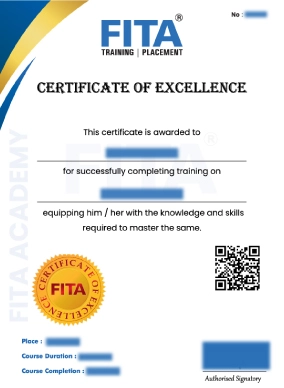
MERN Stack Certification Training in Chennai
Students will obtain a certificate of completion after the MERN Stack Course in Chennai. MERN Stack, one of the popular JavaScript Web Development frameworks, is now widely used by all web developers around the globe. The other is the MEAN Stack, which serves the same purpose but has AngularJs technology incorporated in it, whereas the MERN Stack is ReactJS. Both Angular and ReactJS are used to develop User Interfaces for Web Applications or Websites. Choosing the MERN Stack Certification course is highly appreciated these days to become web development professionals because the framework is in high demand and is being extensively used by top-tier IT companies to create persuasive/influential websites. The other bright side of learning the MERN Stack framework is students have the need to master only two programming languages which are JavaScript and JSON. Learning these two programming languages is sufficient to work with the MERN Stack Framework as each of the codes that have to be written for developing Websites or Web applications is JavaScript only. These codes take care of the work of developing both the client-side and server-side of the web applications.
For those who are still trying to convince that if they want to take up the MERN Stack Certification in Chennai, the market share value of the framework might be a reassuring factor. This is a clear indication that many companies will bet on the MERN Stack framework in the future to develop engaging and user-friendly websites. There are some prerequisites necessary to understand this framework because it helps the learners grasp the concepts during the training program quickly. Some of the prerequisites are HTML, CSS, JavaScript, Git, Github, Web Architecture, HTTP and REST, Database storage, NPM, and Soft skills. Even if students don’t possess a good knowledge of these concepts, FITA Academy’s trainers teach them from the basics, cover all these imperative concepts, and make sure students are equipped with a sound knowledge of the MERN Stack framework. On the whole, joining the MERN Stack Course in Chennai at FITA Academy will precisely enhance and upskill students’ knowledge of the MERN Stack framework eventually helping them to gain a proactive knowledge of the same.
Benefits of MERN Stack Certification at FITA Academy
- Enhanced proficiency in building modern web applications using MongoDB, Express.js, ReactJS, and Node.js technologies.
- Industry-recognized certification validating expertise in the MERN stack, enhancing career prospects.
- Practical hands-on experience gained through real-time projects and assignments.
- Comprehensive understanding of each component of the MERN stack and their integration.
- Ability to develop scalable, high-performance web applications meeting industry standards.
- In-depth knowledge of database management, server-side scripting, client-side scripting, and routing.
- Skill development in handling asynchronous events and multi-processing in Node.js.
- Proficiency in using Redux for state management and ReactJS Router for client-side routing.
- Understanding of Flux architecture and its application in ReactJS development.
- Access to experienced instructors, learning resources, and a supportive learning community at FITA Academy.
Have Queries?
Talk to our Career Counselor for more Guidance on picking the right Career for you!
Placement Session & Job Opportunities
After completing MERN Stack Course in Chennai
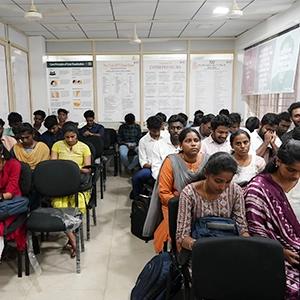


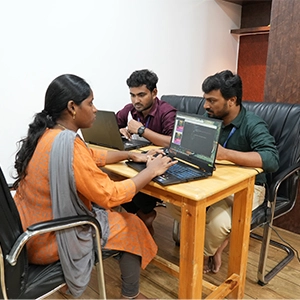
MERN Stack framework is a combination of the prominent four technologies: MongoDB, Express, ReactJS, and Node.js, each one in building effective and valuable websites for organizations. MongoDB is the No-SQL database to store the data of the applications. Express is the Node.Js web framework that helps developers write back-end codes and design APIs. ReactJS is a client-side JavaScript framework for writing front-end codes and designing User Interfaces. The last technology, Node.Js used in the MERN Stack framework, is a JavaScript Runtime Environment allowing developers to run their codes on the server. So, MERN Stack is a full-stack web development JavaScript framework that successfully provides developers the platform to build websites using a single programming language, JavaScript. MERN Stack is the now popularly preferred Web development framework by all IT organizations, from high-profile companies to even Startups and SMBs. Therefore, candidates have a good chance of getting seated in high-end web developer jobs with prominent responsibilities. And FITA Academy ensures it for its students through its MERN Stack Course and it hasn’t got its reputation as the Best MERN Stack Training in Chennai without reason.
“100% placement training and assistance is provided to students by the end of the MERN Stack Course.”
Currently, MERN Stack has a high demand since its usage of a singular programming language, which is JavaScript, and it is a full-stack framework containing all the essential frameworks for each purpose, which are creating front-end, the back-end of a website and a database for storing. Working with the MERN Stack framework has many advantages. Still, some of the main benefits are that it is cost-effective, meaning there is no need to install more than Runtime Environment and no need to depend on more than one programming language, JS. Second, it is SEO-friendly. Websites created using MERN Stack have been proven to be easily read by many search engines like Google, Yahoo, and others. Third, it provides better performance; fourth, improves security; fifth, its delivery time is fast, which means websites can be developed faster rather than taking days and months. The job opportunities available for candidates who have completed the MERN Stack certification Course are MERN Stack Developer, MERN Stack Developer, Software Developer (MERN Stack), and many more. LinkedIn, Google, Amazon, BookMyShow, and more are the companies that hire these professionals in India. Finally, let us discuss the salaries of these professionals in India. MERN Stack Developer Salary for Freshers is around Rs. 5,1,00,000 per annum. Mid-level professionals earn around Rs. 8,07,000 per annum. While experienced professionals earn around Rs. 1,800,000 per annum. To learn more about the MERN Stack Framework and potentially gain a deeper understanding of the framework, enroll in FITA Academy, one of the best MERN Stack Training Institutes in Chennai, which provides the certification course at an economical price.
If you seek employment where you can utilize the skills you have recently acquired, FITA Academy offer an MERN Stack course with placement in chennai to help students land their dream job after the course. Here is a list of the various job roles:
- Full-Stack Developer: They are responsible for the development of both the front-end and back-end components of a web application. They should have knowledge of various front-end and back-end programming languages and frameworks, including AngularJS, ReactJS, and NodeJS.
- Front-End Developer: A front-end developer is responsible for creating a user interface that considers the way in which users will perceive and engage with the website or application in development. They utilize HTML5, CSS3, JavaScript, and other tools to breathe life into the static design prototypes crafted by web designers.
- Back End Developers: A back-end developer enhances the performance of websites and applications by utilizing server-side scripting languages such as Ruby on Rails, PHP, and others. This enables more efficient storage and retrieval of data from databases.
- MEAN Stack Developers: They specialize in MEAN Stack development, encompassing MongoDB, ExpressJS, AngularJS, and NodeJS. Their main task involves creating efficient applications through JavaScript programming.
All these four technologies follow an open-source development model, which makes it easy for developers to collaborate and work together on projects.
Divya S
I am a graduate in Computer Science Engineering who recently passed out. Web Development is my passion and I want to start my career as a Web Developer. Learnt MERN stack is a full-stack framework fulfilling all the needs of web developers. To do my MERN Stack certification Course, I chose FITA Academy because I have heard many good reviews from my fellow classmates. First of all, the training program was really beneficial in terms of gaining great knowledge of the MERN Stack framework. My trainer had a commendable knowledge of the framework which was really seen through her teaching. This is a must-attend training program by web development aspirants as it is really a valuable training program for them.
Lekha G
I chose FITA Academy to do my MERN Stack certification because the reviews I read for the course were really impressive. When I attended the training program I really felt satisfied as each of the sessions was really engaging as our trainer shared all of her insights and knowledge of the framework through brainstorming sessions and quizzes. We mostly had practical sessions which were elaborate teaching us the extensive practices followed in the Web Development domain. Thanks to my trainer and FITA Academy for this valuable training program and for imparting our substantial knowledge of the MERN Stack framework.
Pranav K
I wanted to do a professional MERN Stack Certification Course. I chose MERN Stack because it is an evolutionary modern framework that gives developers the advantage to effectively build websites using JavaScript alone. I was confident that FITA Academy is the right institute to learn the course because I heard good reviews about the Academy. To talk about the training program, it was really beneficial to understand the core working of the MERN Stack framework. The presentation done by our trainer to teach the framework was very impressive as she took lots of real-time web development projects as examples which were easy for us to gain first-hand knowledge of the MERN Stack framework.
Dhivesh J
I am currently working as a Web Development Engineer. When this MERN Stack framework got rolled out, I wanted to learn about it as it really had potential capacities to build user-friendly as well as dynamic websites. So wanted to gain professional knowledge by attending a certification course for the same. FITA Academy was suggested to me by my colleagues as most of them had done their certification courses here and are now in a good position handling prestigious projects for their companies. The MERN Stack Certification program is indeed a must-attend training program for freshers as well as working professionals as they incorporate the best industry knowledge of the framework. I am now quite well-versed in handling the framework and also utilizing it to build professional websites.
Our Students Work at
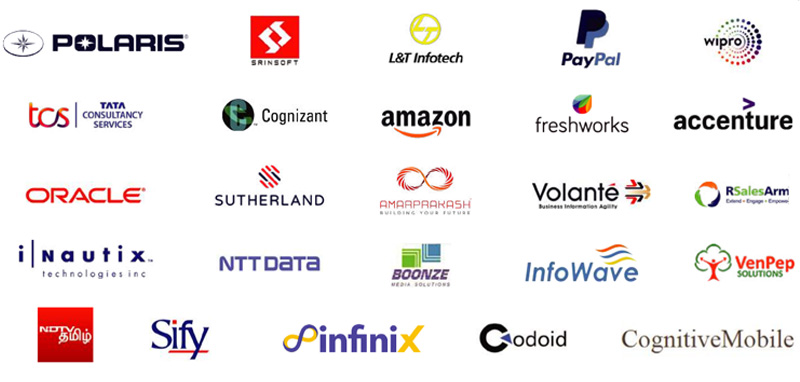
Frequently Asked Question (FAQ) about MERN Stack Course in Chennai
- FITA Academy recruits only Industry professionals as trainers to train students to their best capacity and to develop and enhance their knowledge of the programming language.
- FITA Academy has been in Software and Language training for almost a decade.
- FITA Academy has successfully trained more than 1,00,000+ students under its primacy.
- Affordable fees for students as well as working professionals.
- In-depth course coverage for more than 60+ hours.
- Interview Tips and Corporate Training in Chennai.
- 100% Placement support.
- FITA Academy was started in the year 2012 by a group of IT experts with the aim of delivering world-class IT training at affordable costs.
- FITA Academy so far, since its inception, has trained more than 1,00,000 students and working professionals
- Every batch is optimally sized for five to six members to help students understand challenging concepts; instructors reduce the class size.
- We provide individualized attention for our learners by keeping the batch size as minimum as possible.
General Q & A about MERN Stack Course in Chennai
What is the fees of MERN stack?
How much does a MERN Stack developer make in Chennai?
Is MERN stack a good course?
Is MERN in high demand?
Which institute is best for MERN stack?
Is MERN good for future?
What is the income of a MERN Stack developer in TCS?
Can I learn MERN stack in 3 months?
What is the full form of MERN?
Is MERN better than Java?
How do I start learning MERN stack?
- Learn the Fundamentals of Web Development.
- Setup Node
- Learn Express
- Learn MongoDB
- Learn ReactJS
- Learn Node
- Learn MongoDB
- Learn Express
- Learn Mongoose
- Build a MERN Stack Project
- Practice consistently
Is DSA required for MERN stack?
Who is eligible for MERN stack?
Is HTML used in MERN stack?
Why is MERN stack so popular?
Can I get a job with MERN stack?
How much time is required to learn MERN stack?
Is MERN better than PHP?
Which big companies use MERN stack?
- 7EDGE. Software and Product Development | Dedicated Teams.
- Lomray Software. Mobile app development company.
- TechnoScore. Smart Business Solutionswith Intelligence.
- Canopas Software LLP. Bringing technology to life!
- WebClues Infotech.
- Deorwine Infotech.
- Vinova.
- Canopus Infosystems.
What are some of the common job roles in MERN Stack?
- Front-end Developer
- Full-stack Developer
- Web Application Developer
- Software Developer
- UI/UX Developer
- ReactJS Native Developer
